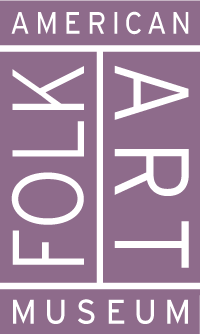Thank you to my dazzling and irreverent friend Laura Parsons. And congratulations to Anne-Imelda Radice and the wonderful board who supports her.
Good evening, everyone, and thank you for being here to celebrate a great national cultural treasure—the American Folk Art Museum.
I am honored and humbled to accept this award on behalf of the Ford Foundation.
Museums, and the arts in general, have always played an important role in our society.
And their role has never been more important than at this very moment—amidst this extraordinary, excruciating election.
Wherever you stand on the issues, it’s hard not to feel like our nation has never been more divided.
We see this divide falling across gender lines and racial lines. Along class lines and religious lines.
And at the Ford Foundation, we believe these divisions stem from the same place as all of our social ills: the rampant inequality that’s infecting our world today.
This inequality comes about for a variety of reasons, including the prevalence of oft-unquestioned cultural narratives that undermine fairness, tolerance, and justice.
These are narratives that link a person’s racial background to criminal behavior.
Narratives that connect a person’s gender to their value at work or at home.
Narratives that ingrain bias and prejudice from an early age, making it more difficult for those ideas to be questioned, confronted, and ultimately dismissed.
The fact is: if we are going to effectively fight inequality, we need to combat our divisions and rewrite these pernicious narratives.
One of the most powerful ways to challenge and change the existing narratives is through the arts.
The arts serve as a great equalizer.
Regardless of where we come from, the arts inspire us to feel—and in doing so, connect us to one another and our humanity.
They challenge us to see ourselves in the work of others, and help us understand experiences far different from our own.
In this way, art tears away our differences, revealing the common emotions that make us all human.
We see this so clearly at the American Folk Art Museum, where visitors to the museum encounter perspectives to which they wouldn’t otherwise be privy.
Through the museum we are given a glimpse into the remarkable creativity and ingenuity of American folk artists, and a glimpse into the incredible variety of perspectives of the American people.
This exposure to other perspectives—other voices, other experiences—is the first step towards challenging preordained cultural narratives and biases, and building empathy for one another.
And in this way, the American Folk Art Museum is not only a beacon in the art world, but also an anchor on the frontlines of social justice.
As Dr. King himself once said,
“Darkness cannot drive out darkness; only light can do that.
“Hate cannot drive out hate; only love can do that.”
And it’s incumbent upon us to remember—especially in these times—that division, and bigotry, and racism, and blame, and ignorance cannot make any nation great.
Only empathy can do that.
Without art, there is no empathy.
Without empathy, there is no justice.
So let us continue to lift up and give generously to the American Folk Art Museum—one of the great jewels in the crown of our city’s great cultural landscape.
My colleagues and I are deeply grateful and humbled by this honor.
Thank you.
